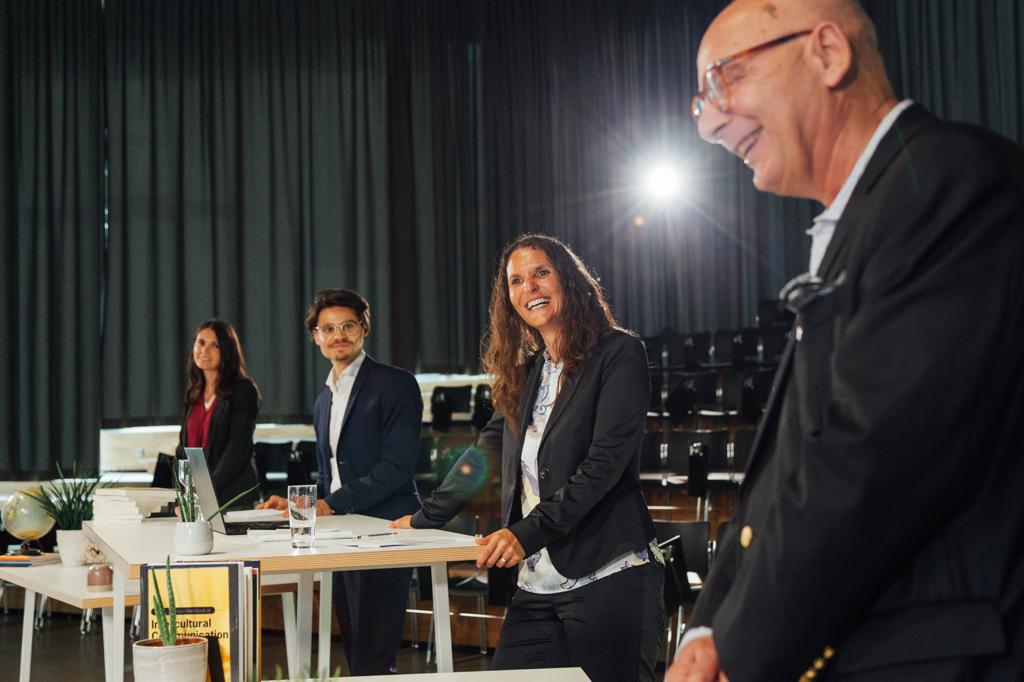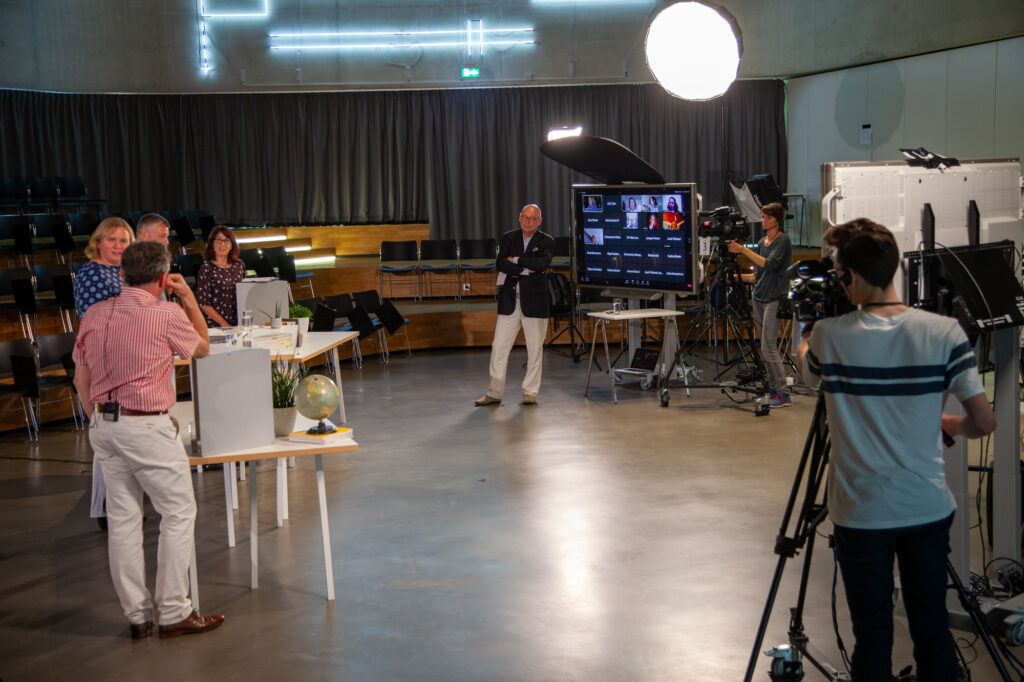In times of increasing complexity and cultural diversity in global value creation, which competences are required to access and develop opportunities for cooperation and mutual learning? What are the conceptual and practical implications of a focus on cultural commonalities as proposed by the transcultural approach?
Questions like these are explored in the Delphi study carried out by the Transcultural Caravan’s research group, led by Dr Julika Baumann Montecinos, Tobias Grünfelder and Jessica Geraldo Schwengber and supervised by LEIZ director Professor Josef Wieland. Initial interim results were presented and discussed at the conference, which was attended by a selected international and interdisciplinary group of renowned experts from research and practice.
The 2-day programme was based on the work in progress of the Delphi study and aimed to take a closer look at those aspects which, according to the first findings of the study, are considered by the expert group to be particularly relevant for further discussions in the field. In panel discussions, keynote speeches and group sessions, the experts reflected on topics such as “Focus on Commonalities”, “Cultural Competence in the 21st Century”, “Leadership Implications” and “Trends in the Field”, and connected the study results to their particular fields of work and experience. In sessions on “What’s New?” and “What’s Next?”, the discussions were taken further and linked to manifold ideas and visions on the conceptual and practical consequences of such an approach, as well as to possible contributions and follow-ups to the study.

“We construct what we want to pay attention to.” This statement by one of the experts reflects the spirit of the conference and indicates that further exchange of knowledge and ideas and developments are required to shape an inclusive and positive approach towards cultural diversity in the future.
The Delphi method as applied in the study on “Transcultural Competence” is a process for structuring anonymous communication within a larger group of experts in an effort to aggregate ideas and achieve consensus among group members. Following three consecutive rounds of questions, conducted from January to June 2020 and combining qualitative and quantitative data, the conference now formed a fourth round, which reflected additional insights and feedback from the experts.
The conference, which was originally planned as an on-site event, was held virtually because of the pandemic. On the second day, individual experts could be on campus for a panel discussion that was streamed live to the online participants. Thanks to the professional technical implementation by Bewegtbildwerft and a student team behind the scenes, the virtual format was appealing, interactive and diverse, as stressed by many participants in their feedback.

The hosts of the conference would like to thank all experts, supporters and collaborators for this outstanding opportunity to deal intensively with the topic of Transcultural Competence. The research group is very much looking forward to the next steps and to further work on this topic, as well as to continuing the exchange with the participating experts.

Leave A Comment
You must be logged in to post a comment.